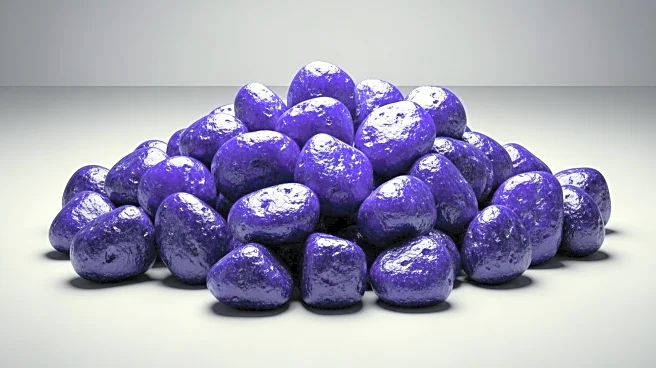What's Happening?
The Democratic Republic of Congo, the world's leading cobalt producer, has announced a permanent ban on cobalt exporters that breach its newly established quota system. President Felix Tshisekedi emphasized the need for 'exemplary sanctions' to curb fraud and stabilize cobalt prices, which are crucial for electric battery production. The quota system, set to replace a previous export ban on October 16, allows miners to export up to 18,125 metric tons of cobalt for the remainder of 2025, with annual caps of 96,600 tons in 2026 and 2027. The state minerals regulator, ARECOMS, is the sole authority for issuing and revoking export quotas. This move follows a significant price rebound of 92% since March, attributed to the export freeze. The decision comes amid ongoing conflict in eastern Congo and a failed US-backed peace effort between Congo and Rwanda.
Why It's Important?
Congo's decision to enforce strict export quotas on cobalt is significant for the global supply chain, particularly for industries reliant on electric batteries. As the source of approximately 70% of the world's cobalt, Congo's policies directly influence global market dynamics. The quota system aims to stabilize prices and prevent market manipulation, which could benefit companies like Glencore that support the system. However, it poses challenges for others like CMOC Group, which opposes the quotas. The geopolitical tensions in the region, coupled with the failed peace agreement with Rwanda, add layers of complexity to the situation, potentially affecting Western investment and the broader economic landscape.
What's Next?
The implementation of the quota system is expected to continue influencing cobalt prices and market stability. Stakeholders, including major mining companies and international investors, will likely monitor the situation closely. The ongoing conflict in eastern Congo and the lack of a peace agreement with Rwanda could further complicate the region's economic prospects. The international community may need to engage in diplomatic efforts to address these challenges and support sustainable development in the region.
Beyond the Headlines
The enforcement of cobalt export quotas in Congo highlights broader ethical and economic issues, such as the need for responsible sourcing of critical minerals. The situation underscores the importance of transparency and accountability in the global supply chain, particularly for industries transitioning to green technologies. Additionally, the conflict in eastern Congo raises humanitarian concerns, emphasizing the need for international cooperation to address both economic and social challenges in the region.









